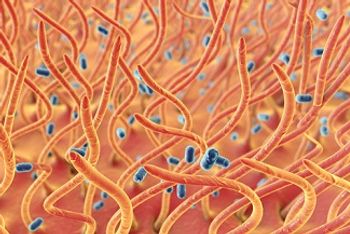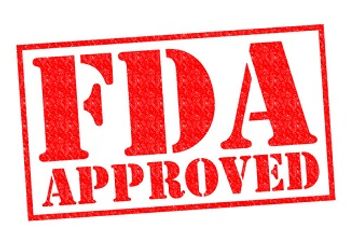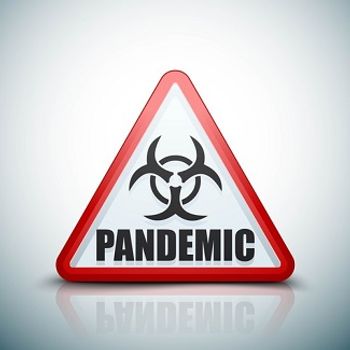
The results of a new study suggest the approach can help stratify patients with the disease.

The results of a new study suggest the approach can help stratify patients with the disease.

Scientists have identified a new strategy to generate novel antibiotics.

Despite current recommendations, Tdap vaccine coverage in pregnant women remains suboptimal.

The Contagion® editorial staff will be providing exclusive written and video coverage from ID Week 2018.

While conducting passive surveillance of triazole-resistant Aspergillus fumigatus cases, the CDC observed some cases occurred in patients who had never taken the antifungal medication.

In September 2017, a patient in Hong Kong was diagnosed with rat hepatitis E virus after inflammation of the liver was observed.

We’ve rounded up a list of important US Food and Drug Administration (FDA) and US Department of Agriculture (USDA) recalls from this past week.

The US Food and Drug Administration has approved Arikayce for the treatment of lung disease caused by Mycobacterium avium complex (MAC) bacteria in a limited population of patients who do not respond to conventional treatment.

In case you missed them, we've compiled the top five infectious disease articles from this past week.

New surveillance report sheds light on meningococcal disease rates among HIV-infected MSM.

In allogenic hematopoietic cell transplant patients, auto-FMT treatment led to the recovery of beneficial gut bacteria close to baseline levels within days.

Plenty of research has gone into the causes and progression of Alzheimer’s disease. Now a new effort aims to make the case that scientists have been looking in the wrong direction.

A new report from the CDC underscores the need for all pregnant women to receive early prenatal care that includes syphilis testing at their first visit.

Contamination is a common aspect of nasal saline irrigations.

Using an algorithm to determine course of treatment shortened antibiotic use by 2 days for patients with uncomplicated staphylococcal bacteremia infections.

Despite big advances in the field of HIV treatment, including streamlined drug regimens that help infected people achieve normal or near-normal lifespans, living with HIV often means dealing with neurocognitive impairment of some kind.

The NIH has launched a phase 1 trial evaluating whether it is safe to administer infusions of 2 broadly neutralizing antibodies (bNAbs) in people living with HIV.

Hepatitis A outbreaks are active in 13 states across the United States, yet vaccination is required in only a fraction of them.

Even as new treatments for the virus become available, access may be an issue thanks to budget re-shuffling in Washington.

New research published in The BMJ indicates that the Pandemrix vaccine was linked with 5 times the number of adverse events reported from 2 other pandemic vaccines.

The FDA has granted QIDP and fast track designations to Cidara Therapeutics’ prophylaxis development program for rezafungin, their lead antifungal product candidate.

Global health officials are concerned about the potential consequences of the disruption to Ebola surveillance in the DRC outbreak caused by civil unrest.

As millennials communicate extensively by text, investigators designed a study to improve rates of retention and medication adherence in young men who have sex with men.

In a new study, investigators say cases of uncomplicated acute appendicitis may be treatable with antibiotics alone in place of appendectomy.

Scientists sought to figure out whether rapid diagnostic tests could be used to determine the susceptibility of P aeruginosa to 2 new therapies. The answer was yes, but with caveats.

Investigators find iclaprim to be active against a worldwide collection of drug-susceptible and drug-resistant beta-hemolytic streptococci from patients with skin and skin structure infections.

A recent study by the Kirby Institute reported that after using direct-acting antiviral therapy 97% of participants with HCV who recently used injectable drugs achieved sustained viral response.

What you should know before you travel this winter season.

We’ve rounded up a list of important US Food and Drug Administration (FDA) and US Department of Agriculture (USDA) recalls from this past week.

Stay up-to-date on the latest infectious disease news by checking out our top 5 articles of the week.